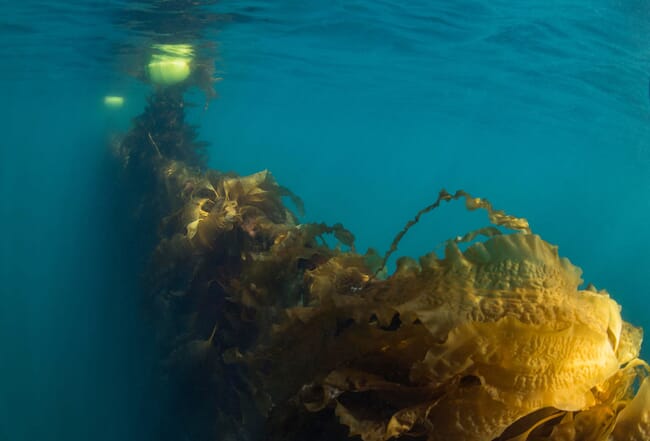
Nordic Seafarm’s investors include JCE Ventures, Almi Invest, and Kale United, as well as business angels such as star chef Thomas Sjögren and board member Magdalena Gerger. The company is scaling up its farms on the West coast of Sweden and hopes to become Europe's largest producer of plant-based seafood.
The global market for seaweed is large, around $15.6 billion, and it is expected to grow rapidly at around 11 percent per year. Nordic Seafarm is hoping to capitalise on this potential and has developed a unique method for cultivating plant-based crops in the sea. With this cash injection, the company will gear up to meet the rapidly growing demand for sustainably grown seaweed. According to a news release from the company, its goal is to become the largest seaweed producer in Europe within five years.
"Nordic SeaFarm has a unique expertise and cultivation method that allows for a scalability that we believe will be beneficial for both the company's development and have a positive sustainability contribution to the planet. As long-term investors, we are pleased to be part of another investment in foodtech and sustainable development", says Sofia Karlsson, Investment Director at JCE.
Nordic Seafarm currently sells sugar kelp and sea salad to several of Sweden's top Michelin restaurants and food producers. Star chef Thomas Sjögren, who runs restaurants near the company’s sea farm outside Fjällbacka, became interested after testing the product at his restaurant.
"It really started a year ago when I contacted them to find a collaboration. One thing led to another, and now I decided to invest. I believe in this both from an environmental point of view, but also because the raw materials will need to be used more in the future," says Thomas Sjögren.
The potential of the seaweed industry
Although the major producers today are located in Asia, Europe is trying to break into the market. Consumer demands for higher traceability and sustainable production methods are bolstering Europe’s seaweed producers as they come online. The cold and nutrient-rich waters of the North Sea provides unique conditions to grow seaweed efficiently with high quality and scalability compared to other European countries.
“Harnessing the potential of the sea and using seaweed as a raw material will play a major role in the transition towards more sustainable food production. With the new capital, we can drive a blue revolution, expanding offshore farming capacity from today's 30 tonnes to over 300 tonnes per year, accelerating our product development and making our products available to a wider audience. We are very pleased to have strong and passionate owners who not only contribute capital, but also solid experience in developing tomorrow's food products,” says Simon Johansson, CEO of Nordic SeaFarm.




